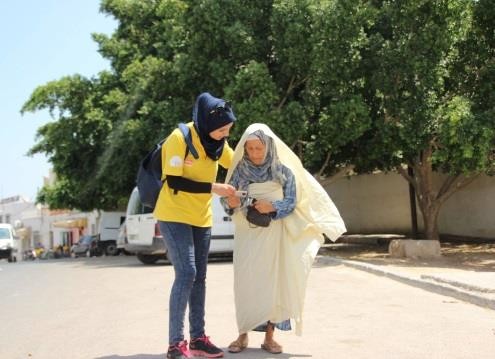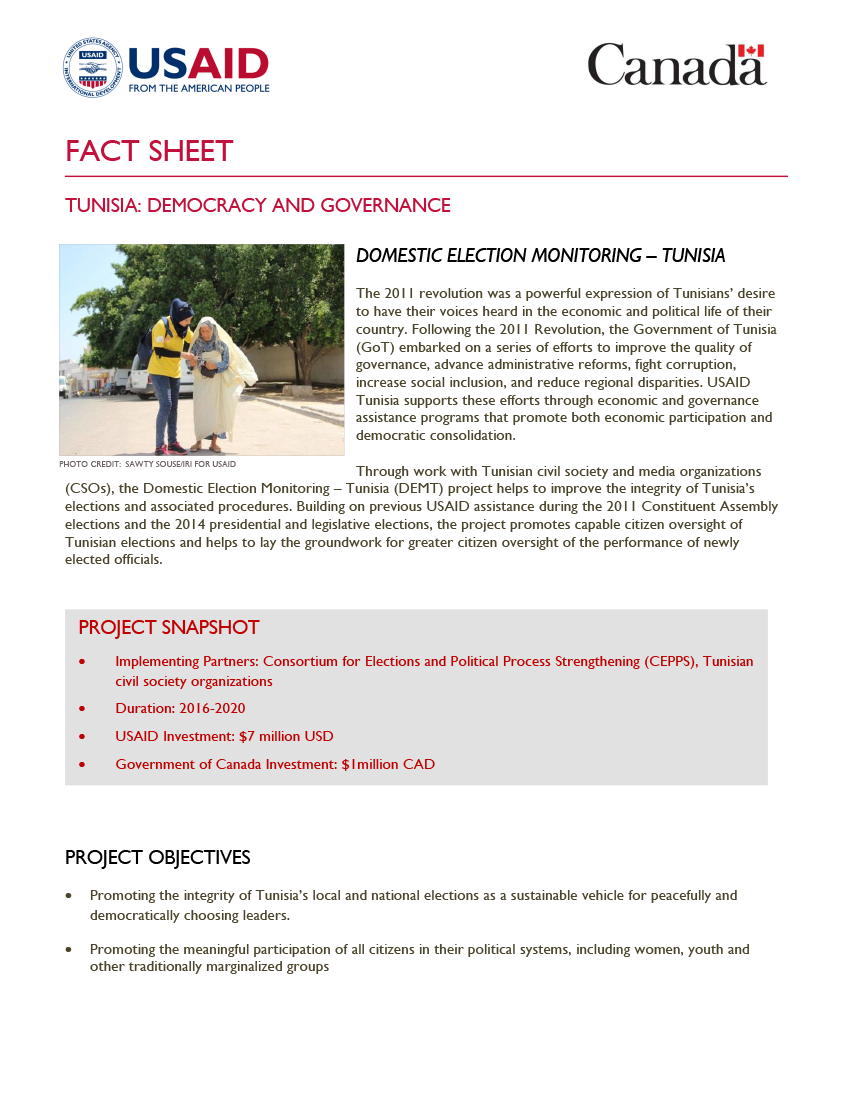Speeches Shim

The 2011 revolution was a powerful expression of Tunisians’ desire to have their voices heard in the economic and political life of their country. Following the 2011 Revolution, the Government of Tunisia (GoT) embarked on a series of efforts to improve the quality of governance, advance administrative reforms, fight corruption, increase social inclusion, and reduce regional disparities. USAID Tunisia supports these efforts through economic and governance assistance programs that promote both economic participation and democratic consolidation.
Through work with Tunisian civil society and media organizations (CSOs), the Domestic Election Monitoring – Tunisia (DEMT) project helps to improve the integrity of Tunisia’s elections and associated procedures. Building on previous USAID assistance during the 2011 Constituent Assembly elections and the 2014 presidential and legislative elections, the project promotes capable citizen oversight of Tunisian elections and helps to lay the groundwork for greater citizen oversight of the performance of newly elected officials.
PROJECT SNAPSHOT
- Implementing Partners: Consortium for Elections and Political Process Strengthening (CEPPS), Tunisian civil society organizations
- Duration: 2016-2020
- USAID Investment: $7 million USD
- Government of Canada Investment: $1million CAD
PROJECT OBJECTIVES
- Promoting the integrity of Tunisia’s local and national elections as a sustainable vehicle for peacefully and democratically choosing leaders.
- Promoting the meaningful participation of all citizens in their political systems, including women, youth and other traditionally marginalized groups
KEY ACTIVITIES
- Foster capable citizen oversight of Tunisian elections. USAID supports Tunisian non-governmental organization partners to carry out long-term observation of the different aspects of the election process, including monitoring voter registration, campaign finance, media coverage, rural participation, and gender participation. For example, USAID supported the deployment of nearly 4,000 domestic observers on the day of Tunisia’s municipal elections.
- Support local CSOs to engage in voter education and registration efforts with a focus on youth, women, persons with disabilities and other marginalized groups. USAID’s civic education efforts are concentrated in Tunisia’s southern and interior regions, where the decline in voter turnout has been the most pronounced.
- Facilitate journalist training and media programming to raise citizens’ awareness of the Tunisian electoral processes and how they relate to better governance. USAID’s partners are working with Tunisian media outlets and local radio stations to produce balanced, analytical coverage of elections that is sensitive to the particular concerns and needs of local communities, women, youth and persons with disabilities.
CONTACTS
MISSION
USAID/Tunisia
U.S. Embassy Tunis
Les Berges du Lac-1053
Tunis
TUNISIA
Email: DOCTunisia@usaid.gov
HEADQUARTERS
Tunisia Desk
U.S. Agency for International Development
1300 Pennsylvania Ave., NW
Washington, DC 20523
USA
Email: TunisiaDesk@usaid.gov


Comment
Make a general inquiry or suggest an improvement.